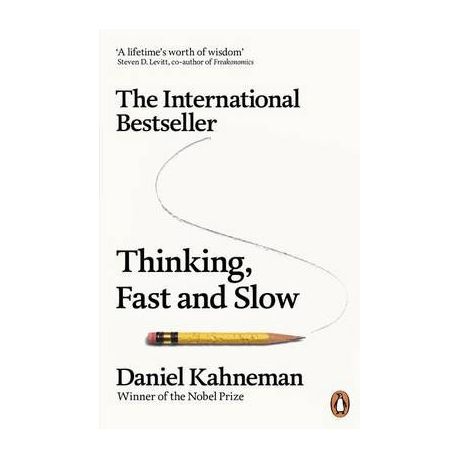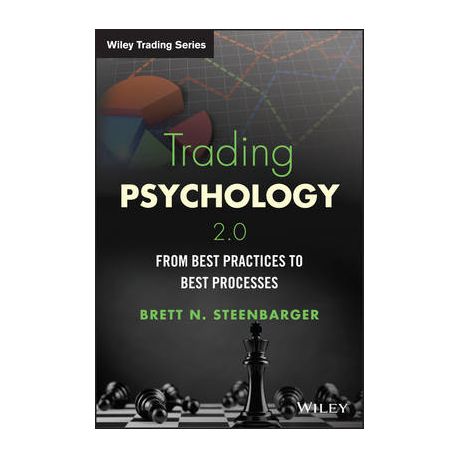The Art of Trading Psychology (How to Win in 2024)
07/03/2024
Trading is not merely a game of numbers and charts; it's also a battle within the mind. Read on.
Trading psychology encompasses a wide array of emotions, behaviours, and cognitive biases that influence decision-making in the trading arena, with greed, fear, overconfidence, and impulsivity being just a few.
Understanding one's psychological triggers and biases is fundamental to making informed trading decisions, so let’s begin with the two strongest emotional factors:
The Trading Psychology of Fear & Greed

Fear of losing money can lead to hesitation or avoidance of potentially profitable opportunities. At the same time, greed can cause traders to take excessive risks in pursuit of quick gains, only to end up out of luck.
Moreover, trading psychology encompasses the phenomenon of loss aversion, where the pain of losing is psychologically more significant than the pleasure of winning, and because of this, our own biases can lead us to hold onto losing positions for too long, hoping for a turnaround, instead of cutting their losses and moving on.
Risk Management
Risk management is another crucial aspect of trading psychology. Traders must strike a balance between taking calculated risks to achieve profits and protecting their capital from significant losses. This requires a rational assessment of risk-reward ratios and the ability to adhere to predefined trading plans, even amid uncertainty or market fluctuations.
Cognitive Biases
Cognitive Biases can significantly influence trading psychology and decision-making. Confirmation bias, for instance, leads traders to seek information confirming their existing beliefs while ignoring contradictory evidence. This can result in flawed analysis and poor trading outcomes. Overcoming cognitive biases requires a willingness to challenge assumptions and remain open to alternative perspectives.
So, how do we combat these crucial factors that threaten to hold us back?
Two words - Emotional Resilience.
The ability to remain calm and composed during periods of market turbulence is essential for maintaining trading psychology. Emotions such as panic or euphoria can cloud judgment and lead to impulsive decisions contrary to one's long-term trading strategy.
By cultivating discipline, emotional resilience, and a willingness to learn, traders can enhance their trading psychology and improve their overall performance in the financial markets.
So, how exactly do we cultivate emotional resilience?

With dedication and practice, it's possible to significantly improve your trading psychology and become a more successful trader.
Self-Awareness
The first step towards improving your trading psychology is to develop self-awareness. Take the time to reflect on your emotions, thoughts, and behaviours while trading.
Journaling, in particular, has proven to be an excellent means by which to reflect on one’s emotions and identify one’s strengths and weaknesses by taking note of one’s reactions during crucial segments within the financial trading game.
Establish a Trading Plan
A well-defined trading plan can provide structure and discipline to your trading approach. Outline your goals, risk tolerance, and entry/exit criteria in your plan and follow them accurately to avoid the influence of impulsive decisions driven by emotions.
Manage Risk Effectively
Never risk more than you can afford to lose on any single trade to ensure you’re constantly entering the markets with a calm head.
Additionally, use stop-loss orders to limit potential losses and protect your capital.
Embrace Failure
Failure is an inevitable part of trading, but most don’t recognize that it's also an opportunity for growth.
Instead of dwelling on losses or mistakes, use them as learning experiences. Analyze what went wrong and how you can improve in the future.
By re-framing failure as a stepping stone to success, you can develop resilience and confidence in your trading abilities without the fear of loss holding you back and influencing your decision-making process.
Stay Disciplined
Stick to your trading plan, no matter how tempting it may be to deviate, to avoid making impulsive decisions based on fear or greed (the two predominant emotions that we previously discussed).
Take Breaks
Trading can be mentally and emotionally draining, especially during periods of high volatility. Allow yourself to take breaks and step away from the markets when needed. Engage in activities that help you relax and recharge, whether exercising, spending time with loved ones, or pursuing hobbies.
Here are Some of the Best Books on Trading Psychology

"Thinking, Fast and Slow" by Daniel Kahneman
While not explicitly focused on trading, this book by Nobel Prize-winning psychologist Daniel Kahneman explores the cognitive biases and heuristics that influence decision-making. Understanding these psychological phenomena can help traders identify and mitigate market irrational behaviour.
‘’Trading with DiNapoli Levels’’ by Joe Dinapoli

The independently rated No.1 Best-Seller, ‘’Trading with DiNapoli Levels,’’ not only offers sound advice on how to approach the markets emotionally but also provides a complete trading package for both new traders and rehearsed veterans.
"Trading Psychology 2.0: From Best Practices to Best Processes" by Brett N. Steenbarger

Another excellent book by Brett N. Steenbarger, this updated edition expands on the concepts introduced in his previous work and provides new insights into the psychology of trading. The book covers topics such as performance enhancement, mindfulness, and the role of psychology in trading systems.
In Conclusion
Improving your trading psychology is a journey that requires commitment, self-awareness, and perseverance.
Implementing these strategies and techniques can cultivate a mindset conducive to success in the financial markets.
Trading psychology is more about managing emotions and behaviour than analyzing charts and data. You can become a more disciplined, confident, and profitable trader with practice and patience.